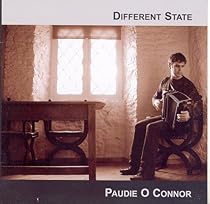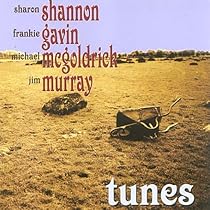 Songwriter Johnny Duhan continues to chart his course, navigating his way even further into our hearts, with his latest album, ‘The Voyage’. A familiar title from a familiar and much loved song, this, his seventh album is a collection of old and new songs, that travels to the heart of marriage and family life, encompassing the aspirations and struggles of several generations of the one strain. Like all Johnny’s work, these songs are highly personal explorations on themes of birth, marriage, commitment and the tension, reconciliation and joy that happens within the family circle. “The first group of songs I wrote many, many years ago” remembers Johnny, “was called ‘Just Another Town’ and that was about community, the city where I grew up, the street where I grew up, the family I grew up among and the people that affected me most growing up. All my work since then except the album ‘Don Quixote’ which is about my travels with the rock band and the people I met along the way, is related in some way or another to family and this album is very related too. All the songs are about family and family relationships, the ups and downs, the struggles of everyday life for a family.”
Songwriter Johnny Duhan continues to chart his course, navigating his way even further into our hearts, with his latest album, ‘The Voyage’. A familiar title from a familiar and much loved song, this, his seventh album is a collection of old and new songs, that travels to the heart of marriage and family life, encompassing the aspirations and struggles of several generations of the one strain. Like all Johnny’s work, these songs are highly personal explorations on themes of birth, marriage, commitment and the tension, reconciliation and joy that happens within the family circle. “The first group of songs I wrote many, many years ago” remembers Johnny, “was called ‘Just Another Town’ and that was about community, the city where I grew up, the street where I grew up, the family I grew up among and the people that affected me most growing up. All my work since then except the album ‘Don Quixote’ which is about my travels with the rock band and the people I met along the way, is related in some way or another to family and this album is very related too. All the songs are about family and family relationships, the ups and downs, the struggles of everyday life for a family.”
Though now living in Galway, Johnny originally hailed from Limerick. He first came to public attention as the lead man with the blues based rock band ‘Granny’s Intentions’ in the 1960s. He chucked the heady rock n’ roll lifestyle for virtual seclusion and found in himself the passion which has since guided his star, song writing. His songs have been sung all over the world and have been recorded by many great artists. Johnny himself is the supreme interpreter of his own material which with each new round of words and melody become more and more poetic, full of imagery, graceful and sensitive, and always highly personal. ‘In our Father’s Name,’ a song with a very memorable melody is Johnny’s personal favourite
‘In the long shadow
of our family tree
that darkened once
the heart in me
I found good reason
to believe
in our frail seed.’
“I met a guy at a gig one time who told me that the song ‘The Voyage’ meant very little to him because he had no time for his family” says Johnny. “In fact he told me he hated his brothers and sisters and he hadn’t been home in years. There’s a lot of fractured families out there like that. I wrote ‘In our Father’s Name’ for them and for all divided people.”
The title track of this new album ‘The Voyage’ is already well known to us. “A lot of people think it’s Christy’s song” says Johnny, “I actually recorded it a long time ago on an album called ‘Family Album’ which in many ways is the only album of mine I was never really satisfied with. I recorded it for another company and since I parted with them I’ve worked on my own and I don’t have to compromise at all. When the rights to the album reverted to me I decided I couldn’t re-release it without getting rid of the dud songs. I went to work on it so there’s about half of the old songs and half new. I believe the five new songs are the real thing – inspired by real events and real people.”
‘The Voyage’ is Johnny’s best known song, popular all over the world particularly for weddings and anniversaries and Johnny has a constant stream of emails and letters from people requesting the words of the song or the sheet music or telling their own story about it. The Irish Tenors also recorded it and sold one and half million copies of the album it was on in America alone. Christy Moore however, admitted in his song book ‘One Voice’ that he had some reservations about recording it at first. “In a way I understand that” says Johnny. “Soon after I released the song on ‘Family Album’ my Dublin booking agent phoned me and told me he was having difficulty getting promo spots on TV because most of the people in RTE thought the family was a dead institution. I don’t think this was true. Deep down, most of us love our families, but it had become a taboo subject to sing about. In a way it was a radical thing I did turning this notion on its head.”
Despite Johnny’s reservations, ‘Family Album’ was one of his most successful collections, with its songs being covered by Dolores Keane, Mary Black, Francy Conway and of course Christy. ‘Trying to get the Balance Right’ was recorded by Mary Black and again it’s a song about relationships. “I struggled with this one for a long time” says Johnny, “then I remembered a circus I went to when I was a kid, watching the high wire act and I kind of compare that to that of the struggle of two people trying to stay together without falling overboard.”
Like most songwriters, Johnny sends his songs to singers he thinks they might suit. One of his favourite singers is Dolores Keane who sang his song ‘After the Dream’ for the film ‘Reefer and the Model’ and ‘The Room’, one of Johnny’s most melodic songs, which she recorded some years ago. “For me she would be up there with the great singers like Billy Holiday and Ray Charles,” says Johnny. “There’s no other Irish singer like her.”
Many of the songs on ‘The Voyage’ relate to children. “They inhabit the whole album in a variety of ways,” Johnny explains. “They’re the ‘crew’ that keep the ship afloat, though they can be mutinous at times, and occasionally even make us walk the plank.” Johnny’s own children are now having children of their own and ‘Aoibheann and Alanna’ is a song celebrating the birth of twins born to his son. “On the morning they were born” Johnny remembers, “our place was full of magpies, and I saw three magpies in different spots, three and three, three for a girl and double. The melody came to me first and I wrote a little piece around it, then a little later the actual song came. It’s a pretty song and they are two pretty girls.” The pretty girls’ father, Johnny’s son was the inspiration for the song ‘When you Appeared’ when he was born himself, and it explores the apprehension of bringing new life into a sometimes violent world. Birth is touched on again in the song ‘Woken Gently’. “This one comes from a very old memory,” says Johnny. “I was born in a house with two rooms up and two rooms down and there was a lot of us so I ended up sharing a bedroom with my parents and I remember I had this hazy recollection of my mother giving birth in the room and I waking up in the middle of the night to it, so I tried to capture a bit of that in this song.”
Another song was inspired by his son, “‘Brian’s song’ incorporates a shanty my son composed on my shoulders when he was five or six on the way to a beach near our home.” Possibly the most beautiful song on the album ‘Cornerstone’ is dedicated to his wife and reaffirms eloquently and emotionally his commitment to their marriage and their love.
Inspiration is crucially important to Johnny. “You need as much patience as skill in the making of a song” he says. “I often think that real songs write me rather than I them. Deep down my work is a quest to understand the experience of my life – my upbringing, the town and people I grew up among, the girls I’ve fallen for, the family that nurtured me and the family I helped form.”
“The words of my songs are more than fifty per cent,” he adds. “ I love melody as well but I spend an awful lot of time trying to write poetry and then converting it into songs. I wouldn’t claim that the songs are poetry but at their best they would be.”
Click here to buy Johnny Duhan's 'The Voyage' from the .tradnet store on Amazon.



